The stone-built Bridge Inn was located at the bottom of St Whites Road at the junction with Valley Road. The Cinderford brook passes under the road at this spot. The 1919 Kellys Gloucestershire directory refers to the Bridge Inn at Cinderford Bridge. The Bridge Inn might have once been called the Railway, or have replaced an earlier hostelry of that name on the same site. The landlord of the Railway in 1863 is recorded as William Mountjoy, who had a long association with the Bridge Inn.
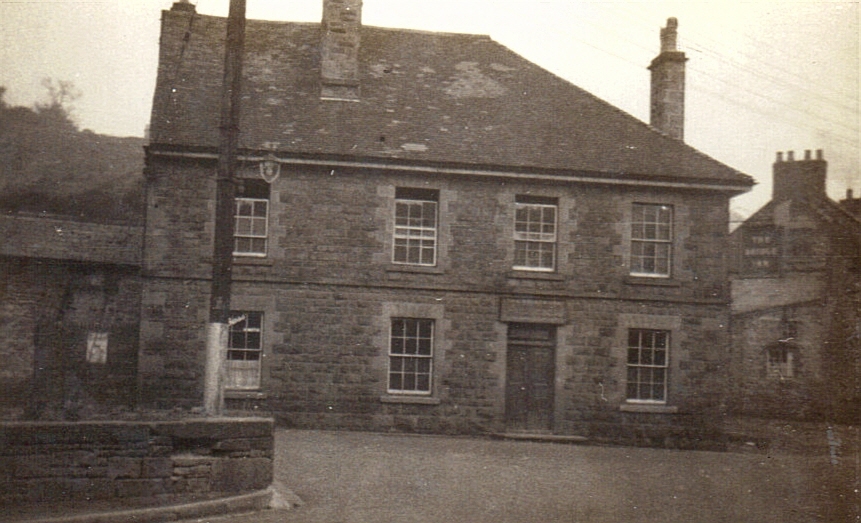
The owner of the Bridge Inn in 1891 was Alfred Wintle of Bill Mills near Weston under Penyard, Ross on Wye. Alfred conducted a malting business at Bill Mills supplying malt to a few pubs making their own beer. His brother Thomas Wintle had started brewing in Mitcheldean in 1869, so although ownership of the Bridge is credited to Alfred Wintle of Bill Mills, the beer was supplied from the Forest Brewery. Thomas passed away in 1888, leaving the brewery in Mitcheldean to his four children of which Francis had sole control by 1890. The Bridge Inn was owned by Francis Wintle in 1903. Throughout those twelve years the annual rateable value of the alehouse was set at £27.0s.0d and it closed each night at 11 pm.
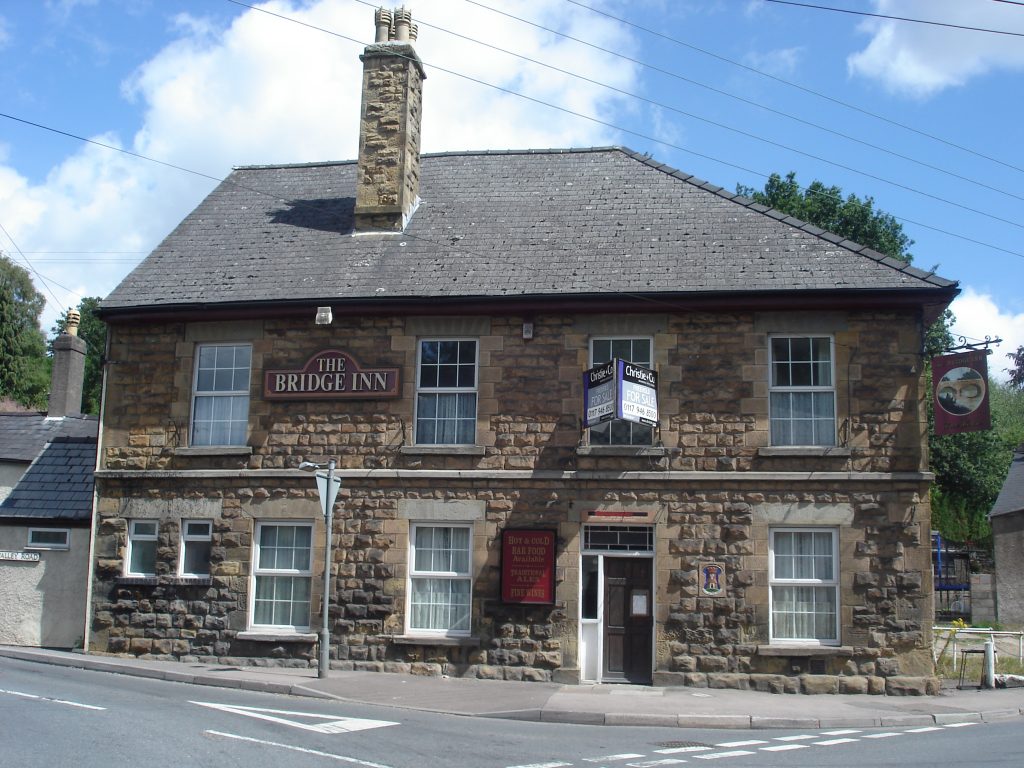
In 1891 one chap bet a sovereign, in the Bridge Inn, Cinderford, that he could carry his mate to the Speech House in half-an-hour. But he stipulated that he’d only carry him and not his clothes! This remarkable spectacle passed Yew Tree Brake before the chap being carried realised that he could lose his sovereign and tried to overbalance himself, ending up being flung in the nearest ditch. Spectators of ‘Lord Godiva’ were joined by a policeman who took appropriate action and charged him with indecent exposure and the other with aiding and abetting.
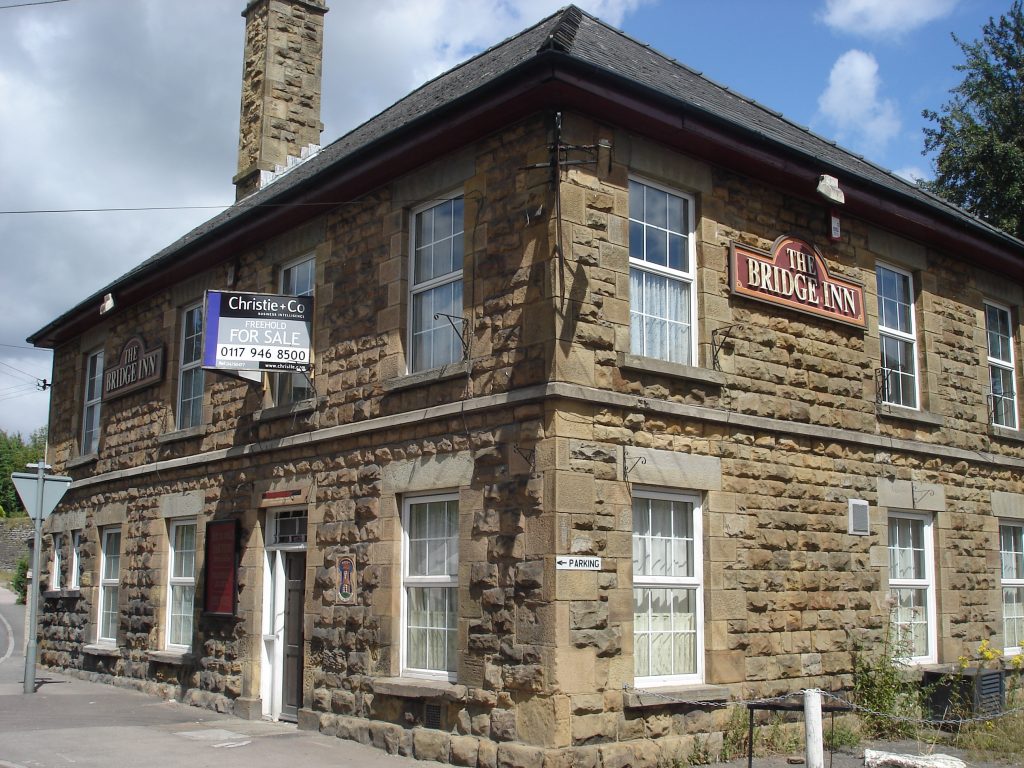
Valley Road is now a sprawling industrial estate but coal mining once dominated the area. In the 1920’s the Lightmoor Pit employed some 500 men and the Bridge Inn was the nearest pub to the pit. At this time the Bridge Inn consisted of ‘serving bar, tap room, smoke room, sitting room, larder, pot house and urinal.’ After a hard day mining coal the miners must have drank several pints of Francis Wintle’s Forest Brewery ales.
In 1937 ownership of the Bridge Inn passed to Cheltenham Original Brewery and later to West Country Breweries and eventually to Whitbread.

The 1996 edition of ‘Real Ale in Gloucestershire’ (CAMRA) described the pub thus: “Modernised pub to the south of town. Comfortable with two real ales usually served. The landlord does not welcome CAMRA members!”
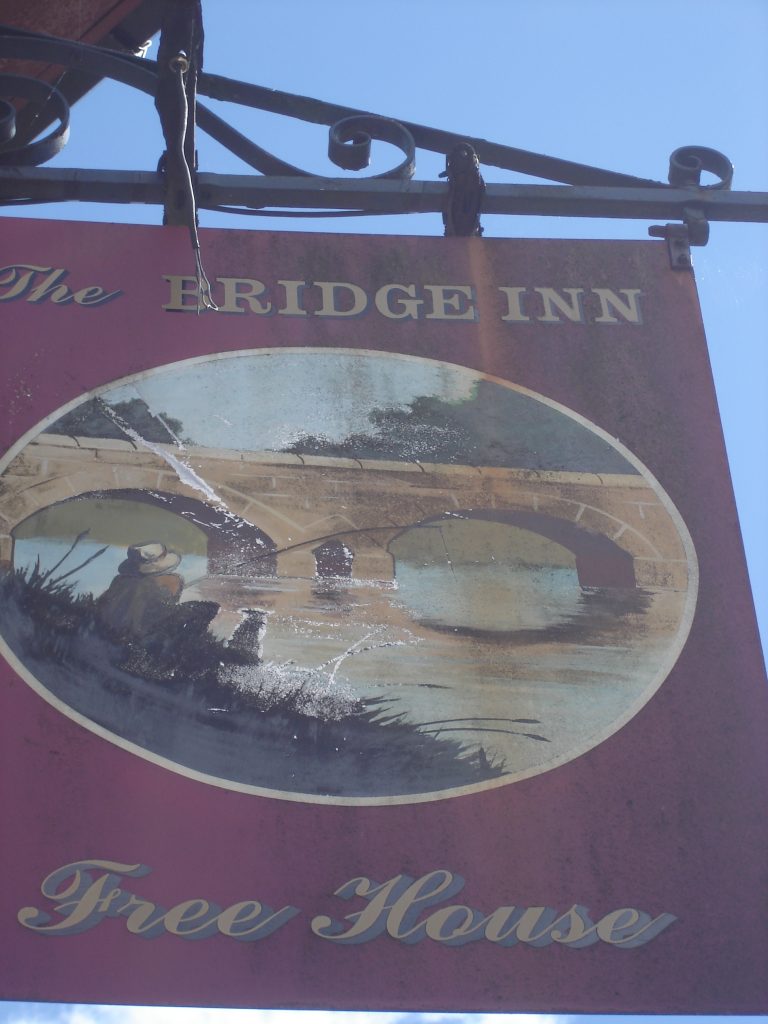
The Bridge Inn was trading in 2004 as a ‘free house’, but when it was put up for auction for £225,000 in September 2006 it was said to have been closed and on the market for some time. The auctioneers also mentioned that the Bridge Inn had ‘development potential’.
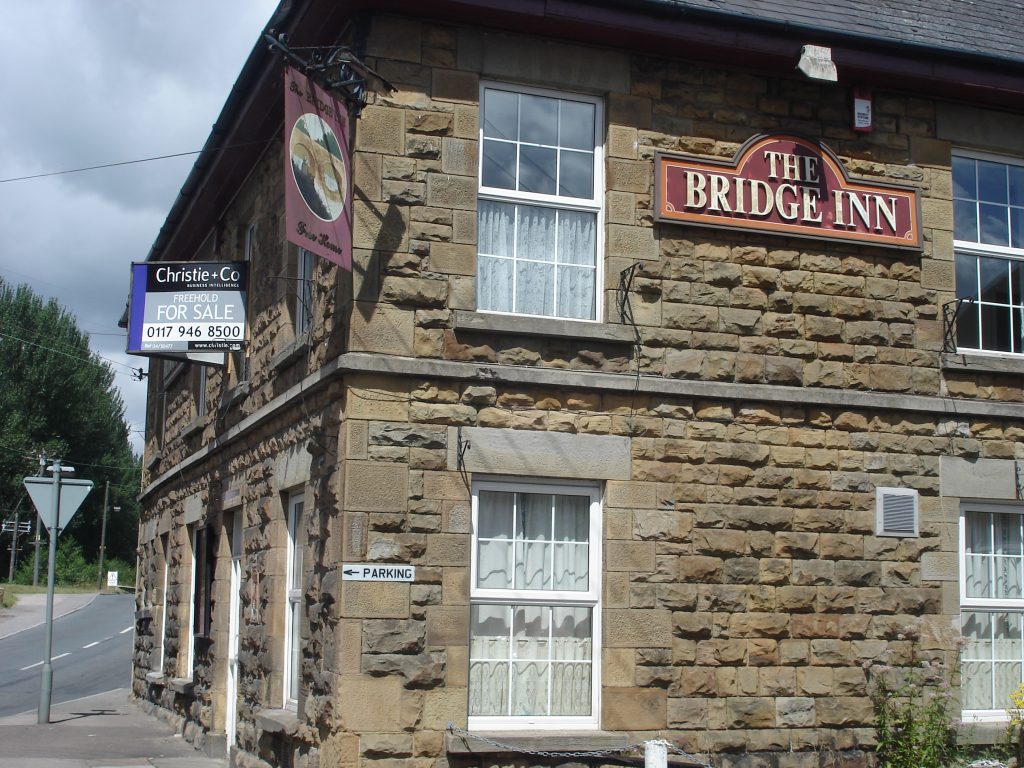
Steve Harborne’s ‘Real Ale in Gloucestershire’ web pages, contains a comprehensive list of closed pubs. Steve has noted that the Bridge Inn closed on 1st December 2005.
A serious accident in August 2006 when a car collided with a corner of the disused pub generated a debate on the nature of the busy junction and the restrictive view around the building. When an application was submitted to the Forest of Dean District Council to convert the boarded-up pub into eight apartments in February 2008 there were strong objections. A letter in the ‘Forester’ noted, ‘With the increasing use of the units in the Valley Road Industrial Site the St Whites / Valley Road junction is becoming extremely busy and dangerous with heavy goods vehicles and large articulated lorries in particular having great difficulty in negotiating the turning.’ The correspondent concluded, ‘why not demolish the derelict pub, widen the corner and then landscape the whole area.’
The decision to either grant or refuse permission to the development was deferred whilst an independent traffic survey was conducted at the Bridge Inn junction. In January 2009 Cinderford Mayor, Max Coborn, said, ‘We are deeply concerned about the road there and want to county council to enforce a compulsory purchase order on the Bridge Inn’. He added, ‘Unfortunately the Bridge Inn will never be a pub again so the best thing to do is to knock it down and create a proper junction.’ But six months later no firm decision had been made. Indeed, there was a proposal to install traffic lights in place at the Bridge Inn junction at a cost of £215,000 to try and improve road safety. Meanwhile, the development proposal had been given outline planning permission. In February 2011 it was decided that the installation of traffic lights at the junction would be impractical. It took until October 2011 for a decision to be made when it was announced that the county council had purchased the Bridge Inn and a planning application to demolish the pub had been submitted by Gloucestershire Highways. Demolition of the Bridge Inn finally took place in the last week of January 2012.
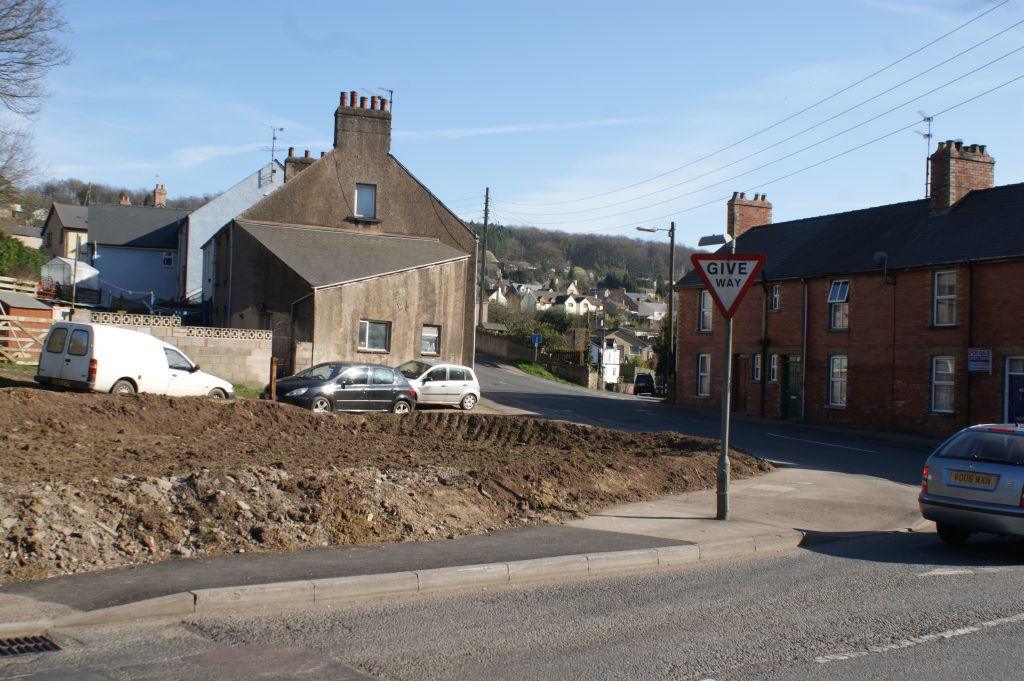
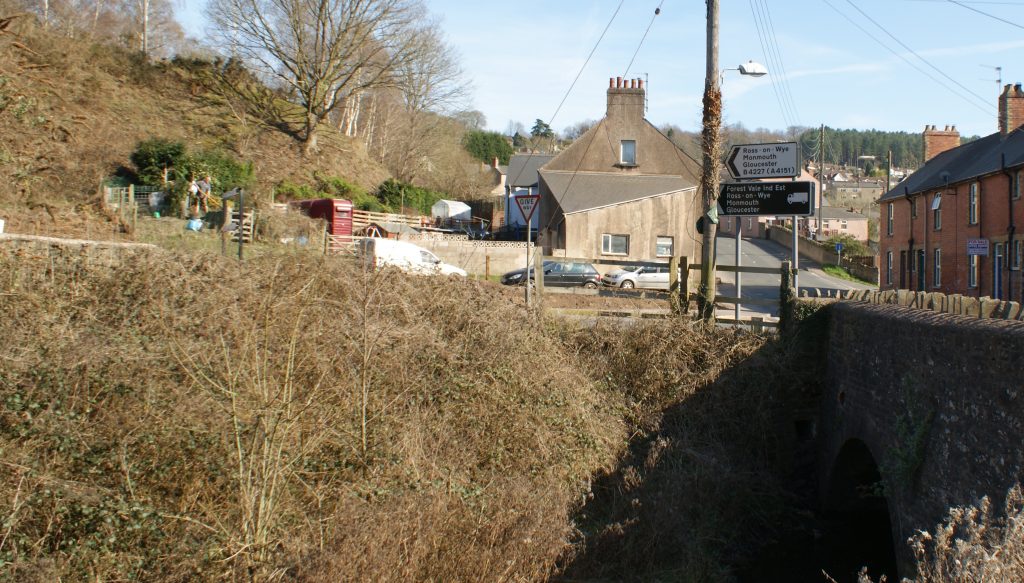
But at least one local resident did not want to see the old Bridge Inn reduced to rubble. Robert Pryce thought that there should be a petition to save the land-mark building. He said “It is criminal that something so old, and a part of the area, is being knocked down.’ When the Bridge was standing there was a ‘Best in the West’ West Country Ales ceramic plaque still in place. Hopefully this was removed to safe keeping before the bulldozers smashed it to pieces.
Landlords at the Bridge Inn include:
1851-1863, 1874-1876 William Mountjoy (listed as landlord of Railway Inn in 1863)
1871-1879 (Mrs) William Mountjoy (William Mountjoy died in 1868
James Hawker (property owned in 1888 by Joseph Bennett)
1900 (28th Sept 1900), 1906 Alfred French
1910-1912 A.J. Hobbs
1919 Geo. Critchley Hobbs
1920 Edward J. Birt
1927 Sidney Bowdler
1935 Frederick William Morgan
1939 William Dew Nash

